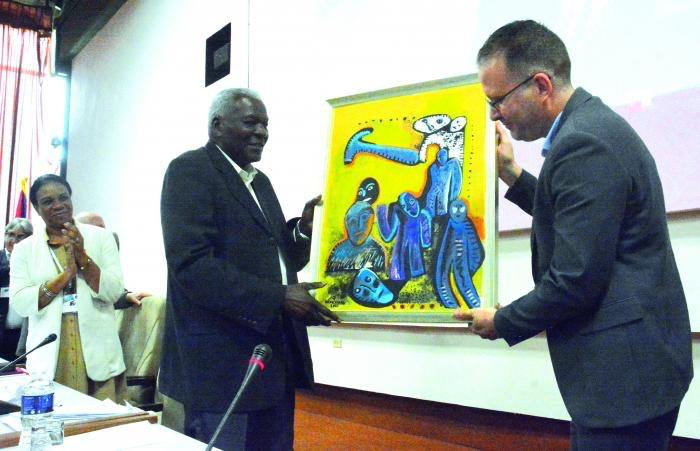The history of the institution is a soap opera full of lynchings, expulsions, censorship and self-incriminations

14ymedio, Yunior García Aguilera, Madrid, 19 September 2024 — Last Sunday, Cuba’s official newspaper Granma published a pamphlet entitled “The Brave and the Cowardly.” It was obvious that the article referred to the reaction caused by the expulsion of Dr. Alina Bárbara López Hernández from the Union of Writers and Artists of Cuba (UNEAC), since several members resigned from the organization and expressed their disagreement on social networks. But the article never dared to mention her by name. It preferred to gloat, in super-worn nautical metaphors and the phraseology of José Martí taken out of context, as Yusuam Palacios, director of the Fragua Martiana Museum, usually does in his pseudo-poetic parliamentary speeches.
However, despite the fact that the text was loaded with all that revolutionary syrup frequently used by the deputy of Sagua de Tánamo, no one dared to sign it. It appeared under the authorship of “Cultural Writing,” a waste of courage. From the language used, everything indicates that it was written by a single person, a bad poet or some cadre who aspires to be the reincarnation of the Naborí Indian,* although only his “Elegy of the White Shoes” was read.
I have spoken to some UNEAC members who remain in Cuba, and they have confirmed to me that the author did not dare consult them before publishing this mock declaration. So it was something fabricated in an office from an order, or an initiative of some enthusiastic official. In summary, the article that calls itself “brave” is not able to mention the name of the person who inspires it, does not dare to affix the signature of anyone in particular and does not have the guts to consult about its content with members of the organization that is attributed to its authorship.
In the comments, a reader states that she is totally lost as to the content of the pamphlet
In the comments, a reader states that she is totally lost as to the content of the pamphlet. Mirella admits: “I am interested in having more information about what is happening at this time that brought about this statement as a consequence. I have some idea, but not enough to be able to enlighten others.” Another reader, Lázaro Numa Águila, confesses: “The editorial makes me feel that we continue to make use of speech that is often


